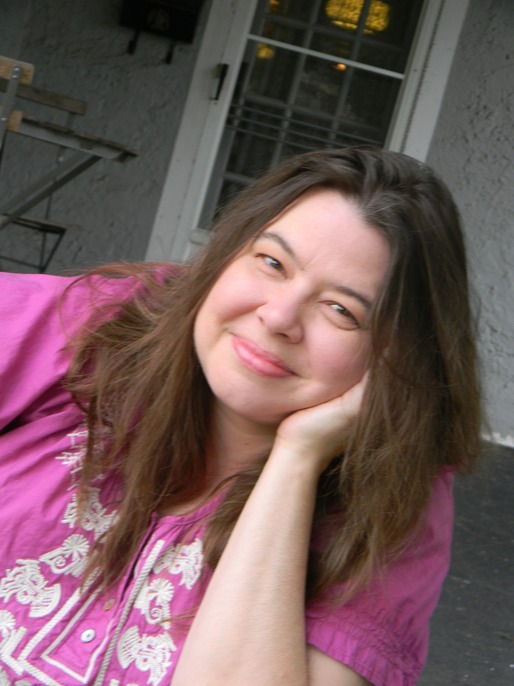
BIO
Nicole Greaves teaches English and various electives at The Crefeld School in Philadelphia. She holds an MFA in Creative Writing from Columbia University, and a certification in secondary English from Bryn Mawr College. Her poetry has appeared in The American Poetry Review; Philly Edition, Jacaranda, Calliope, and Cleaver Magazine. It has been awarded prizes by The Academy of American Poets and the Leeway Foundation of Philadelphia. In 2003, she was the poet laureate of Montgomery County in Pennsylvania. Recently, she completed a manuscript of poems, In the Waiting Room. Her mother came here from Panama at the age of 17, and Nicole and her mother lived a life together in the US that felt peripheral. Much of her work explores themes relating to this feeling, specifically the tensions around acculturation, gender roles, and class.
Conventicle
—Panama, 1992
Moonlight, the crack of stone
inside a hidden doorway, rooms
of dust, of cotton. Two women
sing behind adobe walls, prayer
for Maria, prayer for the wedded
woman sitting alone in the dark,
full with water. They know this:
slow needlework, ropes lined
with cloth, pots burned with rice.
I look through the windows, the
light
chisels each round face, each
round body. There are no men
for miles, only us, here
in this country between countries,
in this light of refuge,
in this nightly covenant.
Hers
Through the keyhole of her ear
where she locked in
to what the sisters were saying,
the disagreement
of their silhouettes
in their first language,
language of sails and conquest,
where azul is closer
to the blue in fire,
hija closer
to the swinging rope in daughter,
and mía closer to mine,
the first word she would learn
in that language,
what she would say
as she touched things—
though this language
was not what she was given.
Head to the Wind
It was temporary in a sea of
temporaries that became
the permanence of home, between what had happened and
what came next that was the waiting for our proverbial ship to
come in, like
those tall ships that roamed colonial ports trying
to catch up to us, or was it
us that was trying to catching up to
them? We were always missing that hope. My
mother was
always mixing up her idioms:
A bucket will drop, so make your
bed. You are the eye of my apple. Don’t
look a dark horse in the
mouth.
Her work was social work, and
there we were living it.
Their Elvis or The Jackson 5 on one side of the
wall. Her
Simon and Garfunkel, and sometimes salsa and cumbia, on our
side. A
dueling conversation that no one picked up in the
morning.
That September I wore a blue
sweater, the exact color of
blueberries, with a bit of purple that rose to the
edge like it
does under skin after falling.
I wore it each day so that
someone called me blueberry girl, and it
stuck. Blueberry girl
getting the newspaper and coffee in the motel lobby.
Blueberry
girl holding her cousin’s hand to the bus stop. Niña azul
purpúreo,
with a nod and a wink.
My cousin’s father came one day
and brought her a doll
head for styling her hair and painting her face, a face
so pale it
seemed to radiate at night, catching the streetlamps on the
dresser
like a figurehead on a ship’s prow taking us across the
sea. I curled up
tightly next my mother in bed, felt her
calloused feet, and longed to sand them
down, to whittle at
them like they were wood, to turn them into birds.
By the Trolley Line
My mother’s house still stands
by the trolley line
where each passing trembles
a little life away: glass breaks
and falls to the kitchen floor.
I would wake on Sundays
to bathe in the shallow
clawfoot tub, feel the shift.
My mother came to tame
my hair, lighten it.
In the kitchen, we spoke
of sleep, of mending
the old wooden stairs.
I do recall these things:
they don’t recall me.
Even when I stand in the same
place, sit in the kitchen’s fire,
it’s my mother’s hands I know,
not my face against them.